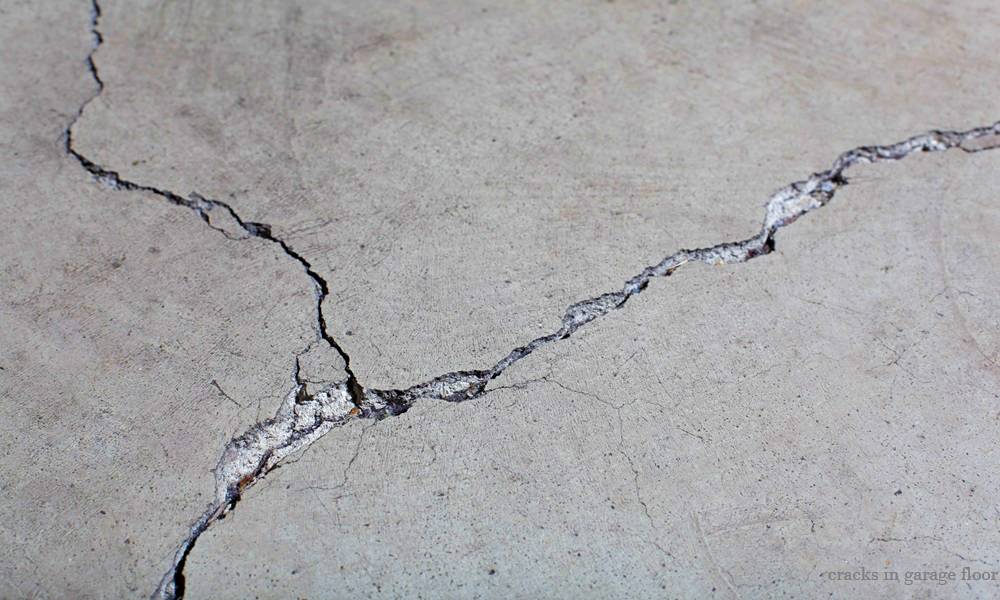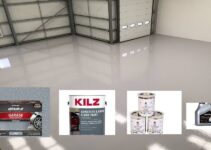Cracks in garage floors are a common concern for homeowners, often sparking worry about potential structural issues. It’s crucial to recognize that not every crack is a cause for panic. In this article, I’ll provide more in-depth information about garage floor cracks, offering insight to help homeowners distinguish between harmless solutions and more critical structural problems.
The Natural Settling Process

Cracks in garage floors can result from the natural settling process of concrete. As the material cures and dries, small cracks may emerge, representing a standard phase in the life of a garage floor. Recognizing these as part of the normal course helps homeowners differentiate them from potentially problematic cracks.
Identifying Types of Cracks
To navigate the world of garage floor cracks, homeowners must be acquainted with the different types. Some cracks are innocuous, arising from the curing process, while others may signal more severe underlying issues. A comprehensive understanding empowers homeowners to make informed decisions about necessary interventions.
Crack Width
Not all cracks are created equal, and their width serves as a crucial indicator of their potential impact. Cracks wider than 1/8-inch raise concerns, as they might indicate issues like excessive shrinkage, improper installation, or inadequate drainage. Monitoring crack width is a proactive approach to identifying problems early on.
Uneven Cracks and Foundation Damage
A distinctive characteristic to watch out for is uneven cracks. When one side of a crack is higher or lower than the other, it could be a clear sign of foundation damage or soil movement. Understanding these nuances is instrumental in assessing the gravity of the situation.
Additional Symptoms
Isolated cracks may not always tell the whole story. Homeowners should remain vigilant for additional symptoms that may accompany cracks, such as doors or windows sticking, cracks appearing in walls or ceilings, or noticeable gaps between the floor and the wall. These indicators may point to more significant foundation problems.
Non-Joint Cracks and Craftsmanship
Cracks not intentionally placed by contractors, known as non-joint cracks, could be indicative of poor craftsmanship or the use of substandard materials. Recognizing these signs is crucial for addressing the root cause of the issue and preventing future problems.
The Importance of Professional Inspection
When uncertainties arise, seeking professional advice is paramount. Trained experts can conduct a comprehensive inspection, assessing the severity of cracks and recommending suitable solutions. This step ensures that homeowners receive accurate information and appropriate guidance for potential repairs.
Repair Options
Repairing garage floor cracks involves various options, depending on the severity of the issue. Minor cracks may be easily addressed with epoxy or polyurethane injections, while more extensive problems could necessitate measures like slab jacking or underpinning. Tailoring the solution to the severity ensures effective and lasting repairs.
Conclusion
Understanding when to worry about cracks in your garage floor is pivotal for safeguarding the structural integrity of your home. While not all cracks are alarming, specific signs demand immediate attention. For a comprehensive understanding and accurate guidance, always consult professionals who can conduct thorough inspections and recommend the most suitable repair strategy.
FAQs
Can I repair garage floor cracks myself?
Discuss the feasibility of DIY repairs for minor cracks and when professional help is necessary.
How often should I inspect my garage floor for cracks?
Provide guidance on regular inspections and signs that warrant immediate attention.
Are all cracks wider than 1/8-inch a cause for concern?
Explain the threshold and exceptions, emphasizing the importance of professional assessment.
What are the long-term consequences of ignoring garage floor cracks?
Discuss potential risks and structural implications of neglecting crack issues.
How much does professional inspection and repair typically cost?
Provide a general overview of the costs associated with professional inspections and repairs.


